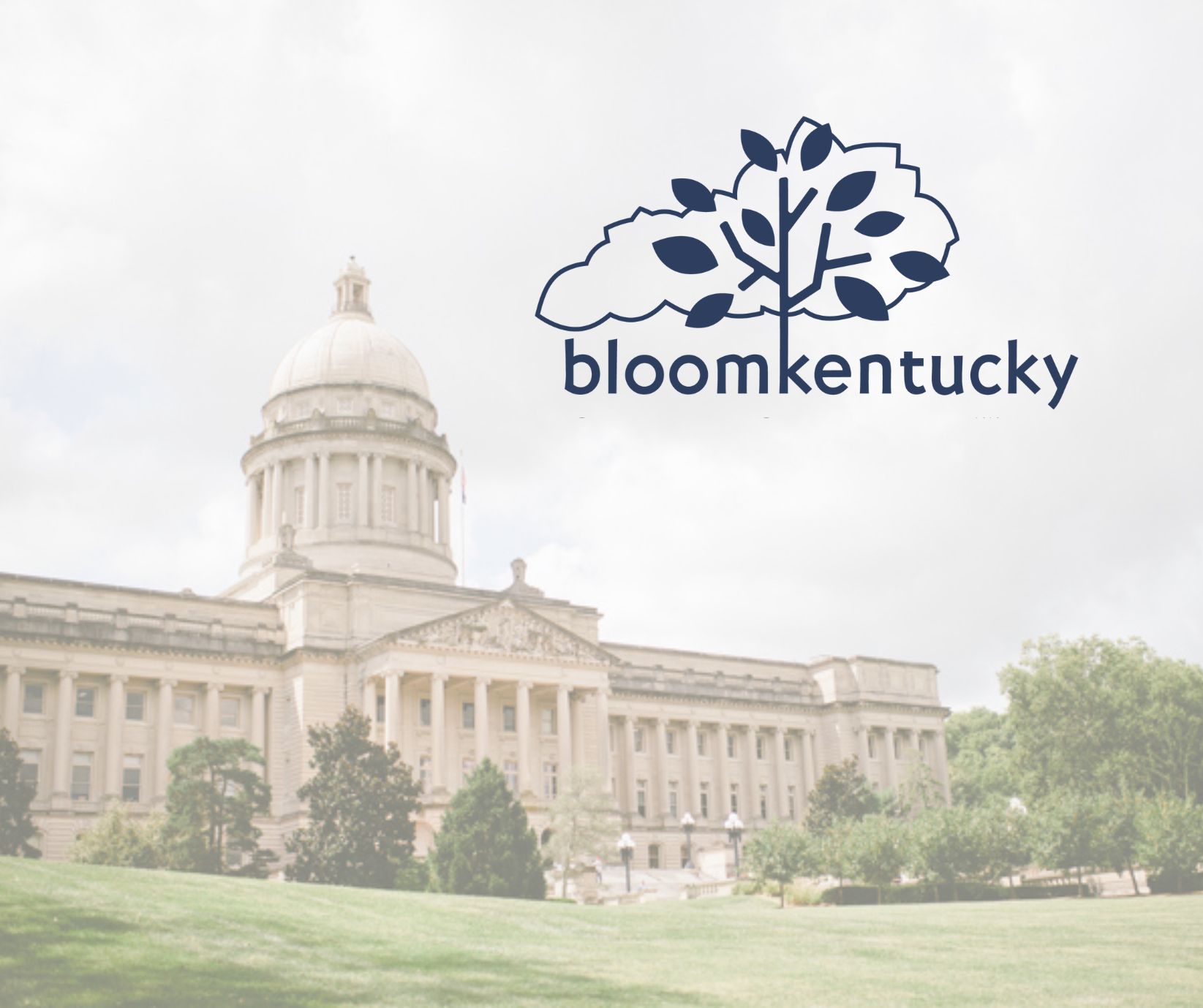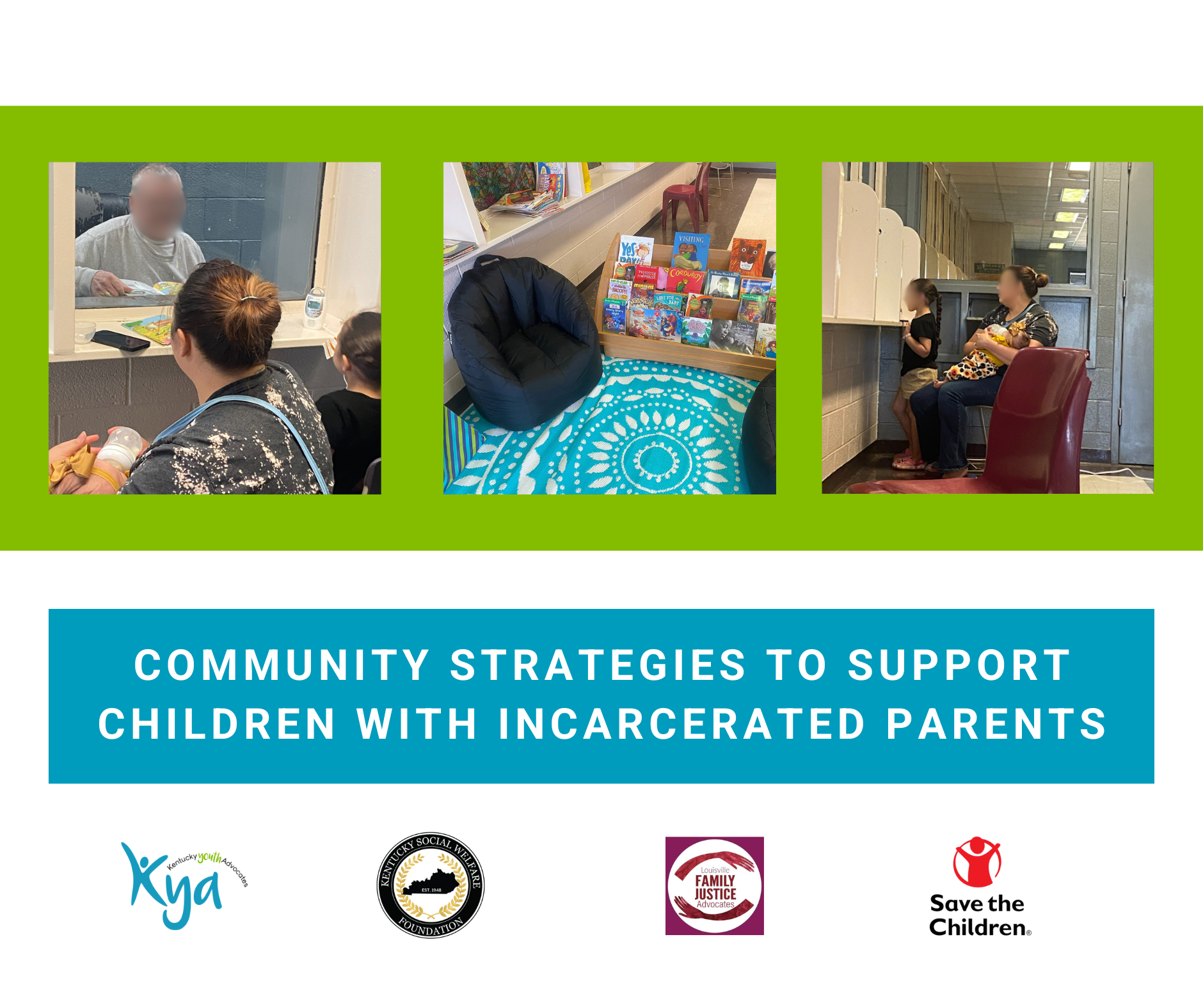Last updated May 21, 2020

During the COVID-19 pandemic, families and health care providers are looking to the Centers for Disease Control and Prevention (CDC) and the Kentucky Cabinet for Health and Family Services (CHFS) for guidance on accessing care and coverage.
Prioritizing the health of Kentucky families requires continued federal and state level action to support the following.
Connect families to health coverage
The state and federal government have taken action to ensure families have access to health insurance during the COVID-19 State of Emergency:
- The federal Families First Coronavirus Response Act eliminates all cost-sharing of COVID-19 screening and testing, freezes Medicaid disenrollment, and extends coverage for pregnant women beyond 60 days postpartum.
- All individuals who do not have insurance can complete an application to request Presumptive Eligibility (PE) under the Kentucky Medicaid program. Presumptive Eligibility Medicaid is temporary and ends on 7/31/2020 unless you submit an application for regular Medicaid.
- CHFS has sent a letter to medical providers that says providers can bill Medicaid for services provided to individuals who present documentation supporting their PE determination. View a sample of the PE documentation supporting an individual’s eligibility.
In order to maintain health coverage, Kentucky should reinstate anyone unintentionally disenrolled in Medicaid and amplify efforts to enroll people who are eligible for Medicaid but not currently enrolled. The federal government should block the public charge rule to ensure immigrants can access health insurance and the care they need.
Share clear guidelines of when families should access care and health professionals can provide care
At the onset of the COVID-19 pandemic, the CDC recommended that health care providers, including dental providers prioritize urgent visits and delay elective care to mitigate the spread of COVID-19 in healthcare settings. A consequence of the pandemic has been the under-utilization of important medical services for patients with non-COVID-19-related urgent and emergent health needs. As the pandemic continues, healthcare systems must balance the need to provide necessary services while minimizing risk to patients and healthcare personnel. The CDC has released a Framework for Healthcare Systems Providing Non-COVID-19 Clinical Care During the COVID-19 Pandemic to provide providers with a framework to deliver non-COVID-19 health care.
On April 27th, Governor Beshear issued an executive order addressing healthcare reopening in Kentucky. Health care providers need ongoing guidance on serving children and families during this time.
- Pediatricians/primary care providers need ongoing guidance from the CDC and CHFS on providing well child visits, sick visits, and immunizations.
- With stay-at-home and shelter-in-place orders limiting movement outside the home, declines in outpatient pediatric visits have resulted in fewer vaccine doses being administered, leaving children at-risk for vaccine-preventable diseases, including measles and whooping cough. Healthcare providers, particularly primary care teams who provide comprehensive care in a medical home, are encouraged to work with families to bring children up to date with their vaccinations as quickly as possible.
- Pediatricians/primary care providers need ongoing guidance from the CDC and CHFS on treatment and symptoms of children with COVID-19.
- Parents and health professionals are now watching children closely for a rare syndrome linked to COVID-19 known as Pediatric Multisystem Inflammatory Syndrome (PMIS). Learn more about PMIS and the signs and symptoms.
- Dental providers need ongoing guidance from the CDC and Kentucky Board of Dentistry on providing dental care visits and procedures during the pandemic.
- Beginning April 27, Kentucky’s licensed dental professionals are able to provide services to their patients by resuming non-urgent, non-emergent dental services, if they’ve met the appropriate reopening guidelines. View the initial reopening guidance and checklist for dental practices that will protect the dental team and their patients.
- The Kentucky Oral Health Coalition collaborated with key oral health partners to create an infographic for individuals, parents, and caregivers outlining some of the changes you may see when you make an appointment or visit a dental office during the pandemic.
Provide ongoing guidance on utilizing telehealth services
Kentucky has taken actions to make telehealth services more widely available for Medicaid and health benefit plans. CHFS and the Department of Medicaid Services have provided guidance on telehealth services, including behavioral health services and teledentistry.
Ensure children have access to needed behavioral or mental health services
Children and teens need access to necessary outpatient behavioral or mental health services to stay healthy. Additionally, families need access to crisis behavioral health services and stabilization opportunities in their community or via telehealth to prevent overburdening the currently strained health care system with hospitalizations.
CHFS should continue implementation of the free care policy so eligible students can access needed services and address behavioral and mental health needs while we continue physical distancing and self-isolating.
Support the state budget with an increase in federal Medicaid dollars
The federal Families First Coronavirus Response Act increases the Federal Medical Assistance Percentages (FMAP), which are the percentage rates used to determine the matching funds rate allocated annually to certain medical and social service programs like Medicaid. The FMAP was increased by 6.2 percentage points, which means Kentucky’s FMAP would increase from 71.8 to 78 percent and our share would decline from 28.2 percent to 22 percent.
National and state organizations are advocating for another increase to the FMAP to support Kentucky’s Medicaid programs and bring relief to the state budget.
Provide Personal Protective Equipment for essential workers
Personal protective equipment (PPE) is used every day by healthcare personnel (HCP) to protect themselves, patients, and others when providing care. PPE shortages are currently posing a tremendous challenge for the healthcare system. Kentucky should prioritize the supply of PPE for frontline professionals and other essential workers in order to help prevent the spread of COVID-19.
The CDC and CHFS have issued guidance on cloth face masks for use by the general public to help prevent the spread of COVID-19.
Ensure access to COVID-19 testing for all Kentuckians
Governor Beshear has announced new partnerships with First Care Clinics and Bluewater Diagnostics Laboratory that will help Kentuckians get tested for COVID-19 at no cost before they go back to work, even if they do not have health insurance.
Information on how to register at one of the more than 70 drive thru testing sites throughout the commonwealth can be found at kycovid19.ky.gov.
Next steps:
- TAKE ACTION by asking Congress to continue federal investments that support access to health coverage and care, sustain the state Medicaid program, and
- Share the guidelines on when to access care with clients, patients, and the community to ensure people are accessing care when needed and to help prevent the spread of COVID-19.
- If you have any supplies to support Kentucky’s COVID-19 response, including PPE for essential workers, fill out this form or call 888-GIVE-PPE.
- Get test for COVID-19 before going back to work on one of the drive thru testing sites across Kentucky.
- For additional information on the impact of the COVID-19 pandemic on health care and coverage, check out our Making Kids Count Podcast episode, COVID-19 and Kentucky Kids: The Impact on Health Care.
View our COVID-19 and Kentucky Kids webpage to stay up-to-date on ongoing advocacy efforts.






Leave A Comment